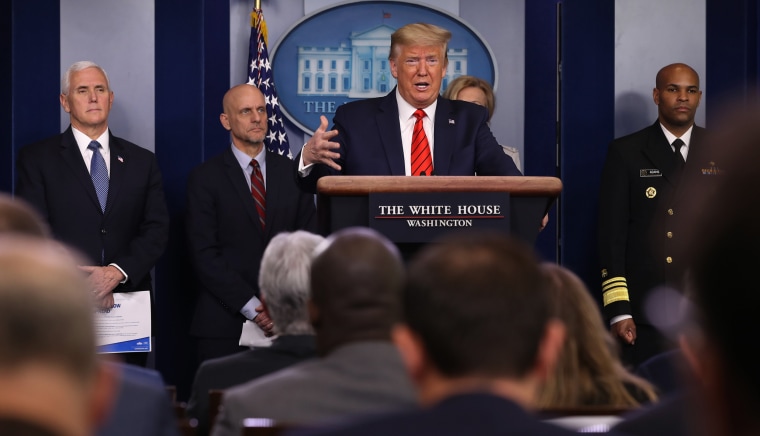As the week got underway, a Washington Post analysis noted that American governors and local leaders have "stepped into the leadership vacuum to make difficult decisions" as the federal response faltered. The Wall Street Journal's Gerald Seib added, "Simply put, governors have been the most effective political leaders in dealing with coronavirus."
What I didn't expect is for Donald Trump to endorse this as his preferred model. These were his comments to reporters yesterday, according to the official White House transcript:
"[G]overnors are supposed to be doing a lot of this work, and they are doing a lot of this work. The federal government is not supposed to be out there buying vast amounts of items and then shipping. You know, we're not a shipping clerk. The governors are supposed to be -- as with testing, the governors are supposed -- are supposed to be doing it."
The president has made far too many unfortunate comments in recent weeks about the coronavirus crisis, but this is among the most breathtaking.
We are, after all, dealing with an ongoing disaster, fueled by a virus that does not care about state boundaries. Obviously, the federal government has a responsibility to step up.
Responding to Trump's rhetoric, former Homeland Security Secretary Jeh Johnson told MSNBC yesterday, "In a crisis like this, the president is actually the shipping clerk in chief. The role of the federal government in a situation like this is to dispatch resources, to supplement support so that people at the local level, hospitals can have what they need."
Jon Chait added yesterday that state and local governments "lack the bargaining power and national scale to take control of industrial processes that lie outside their borders. How is a governor of Ohio or New Mexico supposed to get a manufacturer in, say, California to start producing medical equipment? And how are these governors supposed to allocate the equipment that is produced?"
Obviously, the president's line is intended to avoid blame: Trump wants unsatisfied Americans to blame their state and local officials, and not him. The sooner the White House realizes how twisted this is, the better.
